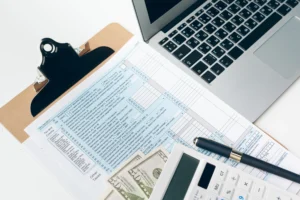
Many businesses receive payment in advance for goods and services. Examples include magazine subscriptions, long-term supply contracts, organization memberships, computer software licenses and gift cards.
Generally, advance payments are included in taxable income in the year they’re received, even if you defer a portion of the income for financial reporting purposes. But there are exceptions that might provide you some savings when you file your 2016 income tax return.
Deferral opportunities
The IRS allows limited deferral of income related to advance payments for:
• Goods or services,
• Intellectual property licenses or leases,
• Computer software sales, leases or licenses,
• Warranty contracts,
• Subscriptions,
• Certain organization memberships,
• Eligible gift card sales, and
• Any combination of the above.
In the year you receive an advance payment (Year 1), you may defer the same amount of income you defer in an “applicable financial statement.” The remaining income must be recognized in the following year (Year 2), regardless of the amount of income you recognize in Year 2 for financial reporting purposes. Let’s look at an example.
Fred and Ginger are in the business of giving dance lessons. On November 1, 2016, they receive an advance payment from Gene for a two-year contract that provides up to 96 one-hour lessons. Gene takes eight lessons in 2016, 48 lessons in 2017 and 40 lessons in 2018.
In their applicable financial statements, Fred and Ginger recognize 1/12 of the advance payment in their 2016 revenues, 6/12 in their 2017 revenues and 5/12 in their 2018 revenues. For federal income tax purposes, they need to include only 1/12 of the advance payment in their 2016 gross income. But they must include the remaining 11/12 in their 2017 gross income.
The applicable financial statement
An applicable financial statement is one that’s audited by an independent CPA or filed with the SEC or certain other government agencies. If you don’t have this statement, it’s still possible to defer income; you simply need a reasonable method for determining the extent to which advance payments are earned in Year 1.
Suppose, for example, that a company issues gift certificates but doesn’t track their use and doesn’t have an applicable financial statement. The company may be able to defer income based on a statistical study that indicates the percentage of gift certificates expected to be redeemed in Year 1.
If your business receives advance payments, consult your tax advisor to determine whether you can reduce your 2016 tax bill by deferring some of this income to 2017. And make sure you abide by the IRS’s rules on these payments.
© 2017





